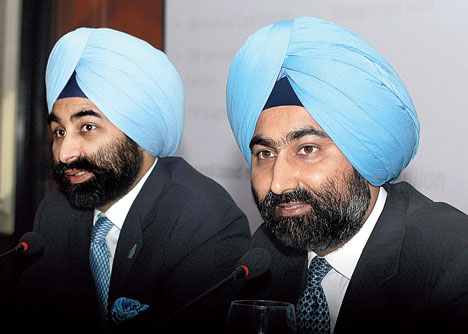
New Delhi: The issue of including natural gas in the goods and services tax could be taken up in the next meeting of the GST Council, a senior government official said on Friday.
The proposal to bring natural gas under the GST on an experimental basis will be put before the council, joint secretary Dheeraj Rastogi said at an industry event.
Aviation turbine fuel (ATF) would be another petroleum product that could also be brought within the GST ambit among the five petroleum products, Rastogi added.
He, however, did not prescribe a specific time frame for the move.
While petroleum products such as kerosene, naphtha and LPG are under the GST, five items in the basket - crude oil, natural gas, aviation fuel, diesel and petrol - have been excluded.
"Petroleum is a considerably larger source for revenues not only for the Centre but also for the states. On the natural gas front, there is some consensus to bring it within the GST ambit and, therefore, it could be the first petroleum product that could come within the GST network," Rastogi said, according to a PHD Chamber release.
Abhishek Jain, tax partner at EY India, said, non-inclusion of natural gas in GST "is leading to a situation where the VAT paid on the procurement of natural gas is not available as credit, leading to an increase in the cost of production. It is rendering medium and small industries economically unviable and uncompetitive as end users could potentially explore importing the products at a better and competitive value compared with domestically sourced goods, which would be loaded with the increased cost".
Oil minister Dharmendra Pradhan had made a strong case for the inclusion of natural gas in the GST regime, stating if polluting coal can be included, then the environment-friendly fuel deserved a place in the new regime. "Coal has been included and levied with 5 per cent tax but gas is outside GST, how fair is that," he said.
In a letter to the finance ministry, industry body Ficci has said that keeping natural gas out of the GST is impacting producers as it is increasing their costs.
Gas sales, including CNG and piped gas supplies, attract lower VAT, ranging from 5 per cent to 12 per cent. The inclusion of natural gas in the GST should not result in any large revenue loss, it said.
"This will be in keeping with the overall policy of the government to shift over to the cleaner fuels and increase the use of gas from present 5 per cent in the energy basket to at least 15 per cent by 2022," the letter said.
The hybrid tax system in the petroleum sector - kerosene, LPG and naphtha are under GST while other products are not-increases the cost of production for both the upstream and downstream companies. The non-availability of such credit required is high, at around Rs 15,000 crore, i.e., Rs 7,000 crore in upstream sector and Rs 8,000 crore in downstream sector, as per an estimate by Federation of Indian Petroleum Industry (PetroFed).
While various goods and services procured by the oil and gas industry are subjected to GST, the sale and supply of oil, gas and petroleum products continue to attract earlier taxes like excise duty and VAT.
Unlike other industries which can take credit for any tax paid towards the furtherance of business, no credits on input GST will be available to the oil and gas industry leading to the huge additional indirect tax burden.
According to official estimates, the revenue from sales tax and value added tax from natural gas to States was about Rs 5,674 crore in 2015-16, which is seen as being much lesser than the revenue to States from other petroleum products. Further, 81 per cent of this total revenue (from natural gas) - about Rs 4,620 crore - accrues to three States: Gujarat, Maharashtra and Uttar Pradesh.
If natural gas is included, GST paid on inputs and services used for producing natural gas can be set off against taxes on its sale. This would cut the losses to the industry by one-fifth. The move will benefit companies like Oil and Natural Gas Corporation (ONGC) as well as gas retailers like IGL.











